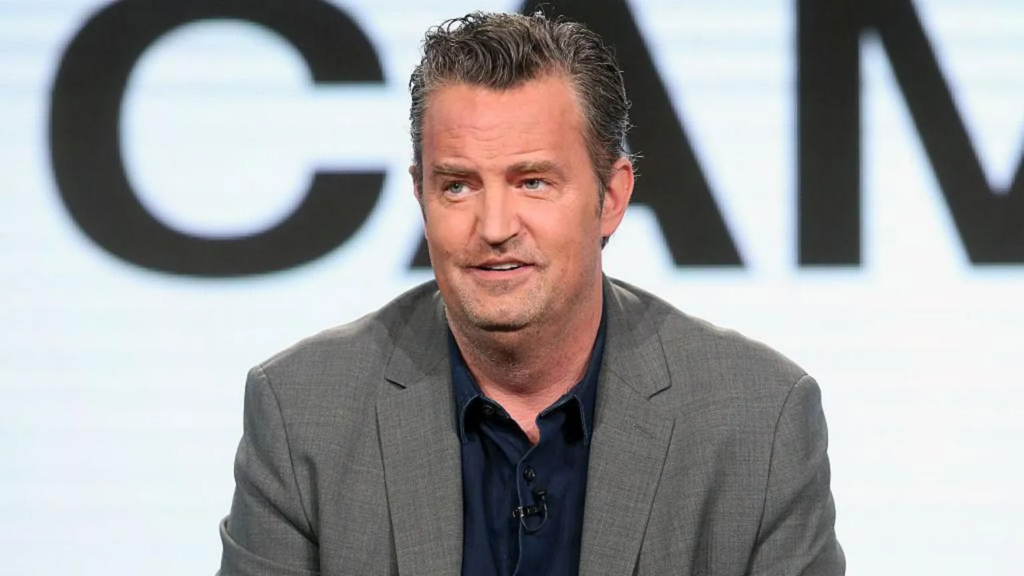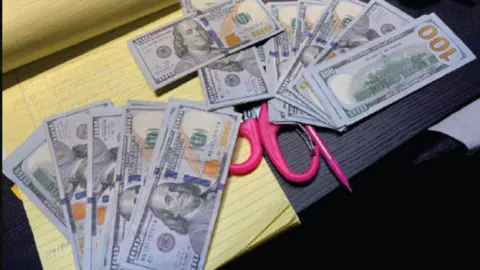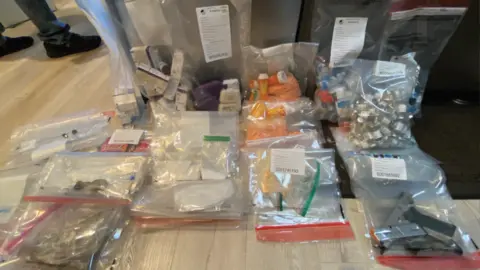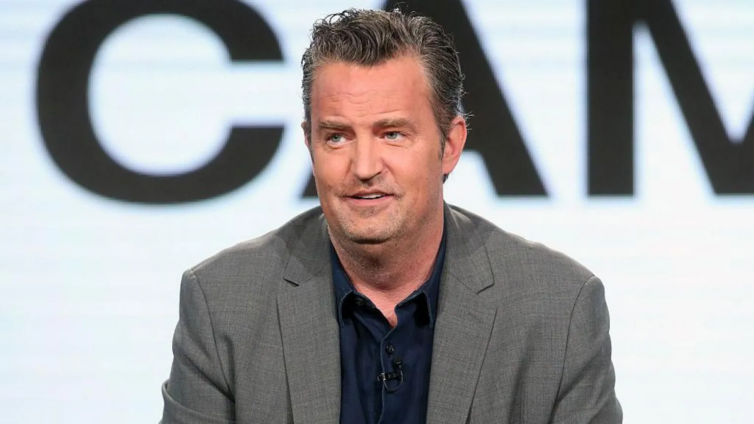Five people have been charged in the drug-related death of Matthew Perry last year, police say, including two doctors and the actor's personal assistant.
Police said on Thursday that their investigation, launched in May, uncovered a "broad underground criminal network" of drug suppliers who distributed large quantities of ketamine.
Perry, 54, died at his Los Angeles home in October. A post-mortem examination found a high concentration of ketamine in his blood and determined the "acute effects" of the controlled substance had killed him.
"These defendants took advantage of Mr Perry's addiction issues to enrich themselves," US Attorney Martin Estrada said on Thursday. "They knew what they were doing was risking great danger to Mr Perry, but they did it anyway."

Three of the defendants - including Perry's assistant - have already pleaded guilty to drug charges, while two others - a doctor and a woman known as "The Ketamine Queen" - were arrested on Thursday, according to the justice department.
Ketamine - a powerful anaesthetic - is used as a treatment for depression, anxiety and pain. People close to Perry, who starred as one of the lead characters on the NBC television show Friends, told a coroner's investigation after his death that he was undergoing ketamine infusion therapy.
But his last session had taken place more than a week before his death. The medical examiner said the ketamine in Perry's system could not have been from the infusion therapy because of the drug's short half-life.
The levels of ketamine in his body were as high as the amount given during general anaesthesia, according to the medical examiner.
An indictment filed in federal court detailed the elaborate drug purchasing scheme that prosecutors say ultimately led to Perry's death.
Prosecutors said Perry's assistant, Kenneth Iwamasa, worked with two doctors to provide the actor with over $50,000 (£38,000) of ketamine in the weeks before his death.
Officials argued those involved in the scheme tried to profit from Perry's well-known substance abuse issues. One of the doctors, Salvador Plasencia, is alleged to have written in a text message: "I wonder how much this moron will pay."

Mr Plasencia, 42, provided Perry ketamine "outside the usual course of professional practice and without a legitimate medical purpose", according to the indictment.
He also allegedly taught Iwamasa how to inject Perry with ketamine without proper safety procedures and surveillance, the police indictment says.
In the four days before his death, Iwamasa gave Perry at least 27 shots of ketamine, prosecutors alleged.
He did so even after a large dose of ketamine earlier that month caused Perry to "freeze up", leading Mr Plasencia to advise against a similar-sized dose in the future, prosecutors said. The doctor still left several vials of the drug with the actor and his assistant after the incident, according to the indictment.
Others charged in the case include Jasveen Sangha, the so-called "Ketamine Queen" who supplied the drug to Plasencia through the help of two other co-defendants, Erik Fleming and doctor Mark Chavez.

Chavez, Fleming and Iwamasa have all pleaded guilty.
Ms Sangha and Mr Plasencia both made their initial appearances in Los Angeles court on Thursday afternoon and pleaded not guilty, the US Department of Justice said.
Both suspects had tentative trial dates set for October. Mr Plasencia was given a bond of $100,000 and Ms Sangha was ordered to be held without bond.
Prosecutors say the defendants attempted to cover up their alleged crimes after Perry's death.
Ms Sangha allegedly texted another suspect, telling him to "delete all our messages". Mr Plasencia also falsified medical records, according to the indictment.
Drowning was also listed as a contributing factor in Perry's death, which was ruled an accident. Other contributing factors were coronary artery disease and the effects of buprenorphine, which is used to treat opioid use disorder.
At the height of his fame, Perry was battling with addiction to painkillers and alcohol, and attended rehabilitation on multiple occasions. He detailed his struggle with substance use in his memoir, Friends, Lovers, and the Big Terrible Thing.
In 2016, he told BBC Radio 2 that he could not remember three years of filming during Friends, because of drink and drugs.
After attempts at treatment, he wrote in his memoir that he had been mostly sober since 2001 - "save for about 60 or 70 mishaps".
Latest Stories
-
DAMC, Free Food Company, to distribute 10,000 packs of food to street kids
41 minutes -
Kwame Boafo Akuffo: Court ruling on re-collation flawed
1 hour -
Samuel Yaw Adusei: The strategist behind NDC’s electoral security in Ashanti region
1 hour -
I’m confident posterity will judge my performance well – Akufo-Addo
1 hour -
Syria’s minorities seek security as country charts new future
2 hours -
Prof. Nana Aba Appiah Amfo re-appointed as Vice-Chancellor of the University of Ghana
2 hours -
German police probe market attack security and warnings
2 hours -
Grief and anger in Magdeburg after Christmas market attack
2 hours -
Baltasar Coin becomes first Ghanaian meme coin to hit DEX Screener at $100K market cap
3 hours -
EC blames re-collation of disputed results on widespread lawlessness by party supporters
3 hours -
Top 20 Ghanaian songs released in 2024
3 hours -
Beating Messi’s Inter Miami to MLS Cup feels amazing – Joseph Paintsil
4 hours -
NDC administration will reverse all ‘last-minute’ gov’t employee promotions – Asiedu Nketiah
4 hours -
Kudus sights ‘authority and kingship’ for elephant stool celebration
4 hours -
We’ll embrace cutting-edge technologies to address emerging healthcare needs – Prof. Antwi-Kusi
4 hours

